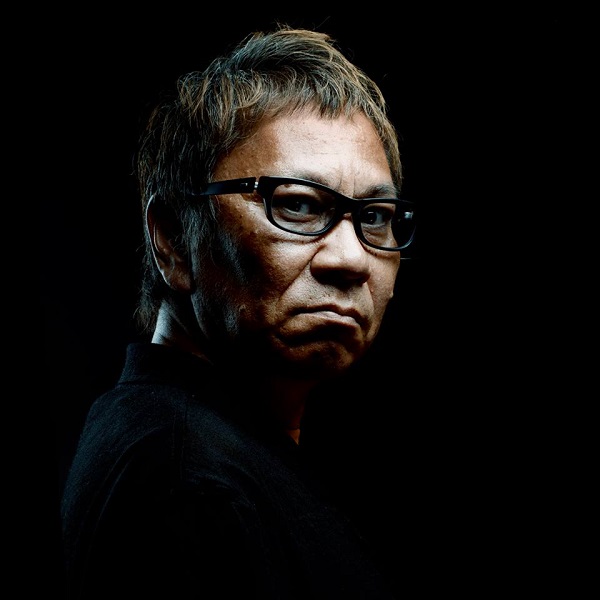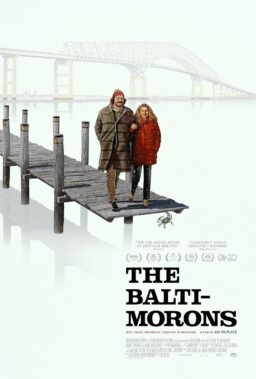Presenting two sold-out showings at Fantasia Fest 2016—“Terra Formars” and “As the Gods Will”—Takashi Miike had the air of a Japanese rock
star as he joined the stage with sunglasses and a stylish wrinkled shorts-suit combo
worn with a t-shirt. Soft-spoken and darkly funny, he seems to revel in the
attention of the adoring crowd, who he jokes with and flatters in equal measure
by way of a translator. No other filmmaker better encompasses the madness and
diversity of Fantasia’s programming as Miike, and this year, it feels like the
prodigal son has returned.
Miike’s first introduction to North America was
through Fantasia. In 1997, his film “Fudoh: The New Generation” (1996) screened
at the festival’s second year, the first time a Miike film had ever played in
Canada or the USA. In Fantasia’s 20-year history, they have now screened 30 of
his films representing just under one-third of his directorial output. This year,
in celebration of his career, he has been honored with the Fantasia Lifetime
Achievement Award in tribute to his contribution to genre cinema. Presenting
two films with extensive Q&As, Miike also sat down with RogerEbert.com for
an interview.

Based on a manga, “Terra Formars” is an eccentric vision of
the future where the earth has become overpopulated and a group of criminals is
sent to eliminate giant cockroaches that have invaded Mars so the red planet
can be colonized. In rapturous color, the film portrays the fate of humanity as
lying in the hands of disenfranchised outsiders, who are motivated by a need to
survive rather than the noble cause of saving the human race. Part comic book
movie, part science fiction and part dark comedy, “Terra Formars” blurs the line
between man and bug, as the only weapon this group of criminals has against super-powerful
giant cockroaches are medical injections that will mix their DNA with different
species of insects, so they can “fight bugs with bugs.”
Somewhat inconsistent tonally, there remains a lot of beauty
in “Terra Formars.” This is Miike’s vision of the future, loaded with dark
predictions about the fate of humanity. Early scenes, especially those set in a
futuristic Tokyo, paint a portrait of the earth as dark, crowded and dirty.
With allusions to “Blade Runner”—Miike’s own touch on the moving Geisha
billboard involves a ball-gag in his model’s mouth—the film explores the nature
of humanity itself. For Miike, “Blade Runner” is shockingly real, representing
“a future that we cannot avoid.” Not making any efforts to hide his influences,
Miike is happy people recognize his allusions, “The thing I want honestly is to
show is the respect I have for other films. Some people might want to hide the ‘Blade
Runner’ aspects, and a lot of people want to make something that is totally
their original work, but I don’t have any desire to do that. I think it’s more
important for me to put in the film something that could feel real.”

The heart of “Terra Formars” very much hinged on the blurring
line between man and technology, suggesting the darker potential of advancing
science used towards the selfish motives. The film itself feels plugged into
electricity, the colors running on the screen a series of incandescent blues
and glowing oranges. In comparison to the dour visions of the future present in
contemporary American science fiction, Miike’s vision seems improbably bright,
echoing the colorful natural world for inspiration. Humanity’s fate resting on
our ability to adapt by way of evolution literally becomes the source of light
and color within the film.
Whether rooted in the past, present or future, Miike’s
vision seems unconcerned with the struggles of the hero as his monsters and
villains are fully realized with deep passions, desires and fears. For Miike,
this darker side is closer to all of us, something he relates to deeply. “I am
attracted to bad people because they are very human,” he says. “The hero has to
be an archetype; they have to be like a dream; they have to be perfect. The
evil is closer to us.” Some of the most touching scenes of the film come by way
of the monstrous evolved cockroaches, who are imbued with limited but
noticeable humanity—such as a brief moment when one of the monsters holds up
its hands begging for its life, just wanting to survive another day.
The minuscule value of humanity in the face of greater
forces, such as nature, fate, and the Gods, comes to an even bigger head in “As
the Gods Will”—another film based on a manga. Much lighter, though shockingly
more violent than “Terra Formars,” the movie begins in a Japanese classroom
already spattered with blood. A few headless bodies and hundreds of red marbles
are on the bloodstained floor, the remaining high school students soaked in
sweat, holding as still as possible, as a giant daruma doll sitting in front of
the classroom recites a poem. Every time the poem is complete, he spins around,
exploding the head of any student who dares to move in his presence. Thus
begins a bizarre invasion by the Gods, where high school students across the
world are forced to compete in a senseless game in order to join the ranks of
“God’s Children.”

“As the Gods Will” was done in part in reverence of director
Kinji Fukasaku, director of “Battle Royale.” Through his cinema, Miike wants to
pay tribute to his own masters, saying “I don’t want to surpass them, but be a
part of their history.” The film’s absurdity and comic violence is rooted in
the same absurdist violence as “Battle Royale,” and locked into the same
insecurities regarding youth. A wide range of different monsters inspired by
Japanese toys and icons brings together CGI and stop motion technology to
breathe shifting tonalities to each different chapter. The film is about the
chaos of destiny—something that runs through much of Miike’s work—as the
industriousness of his characters does not always guarantee they will survive.
Evoking recent tragedies in Japan, Miike theorizes on the unpredictability of
life, “In Japan, there was the big earthquake and the problem with the Nuclear
power plant in Fukushima,“ he said. “Something that was very normal yesterday
could change, and some things don’t go as well as we imagine.”
“My films are like drinking a good beer, but pleasure
doesn’t mean that it cannot change someone’s point of view,” Miike says.
“Pleasure can also be a mirror of the anxiety we feel in everyday life, it can
have a message inside.” As a cult festival, Fantasia employs a different
dialogue with both filmmaker and audience than a more traditional film festival
like TIFF or Cannes. It not only caters an intimacy by blurring the line
between fan, filmmakers and curator—it shelters an environment of shared
pleasure by way of transgression. Miike, who shares his audience’s passion for
cinema, embodies the cult ideal by way of comedy, art and community through
his filmmaking but also his passion for his audience. “Even in Japan people
don’t understand my films,” he said. “It doesn’t matter as long as my films are
appreciated at Fantasia.”












